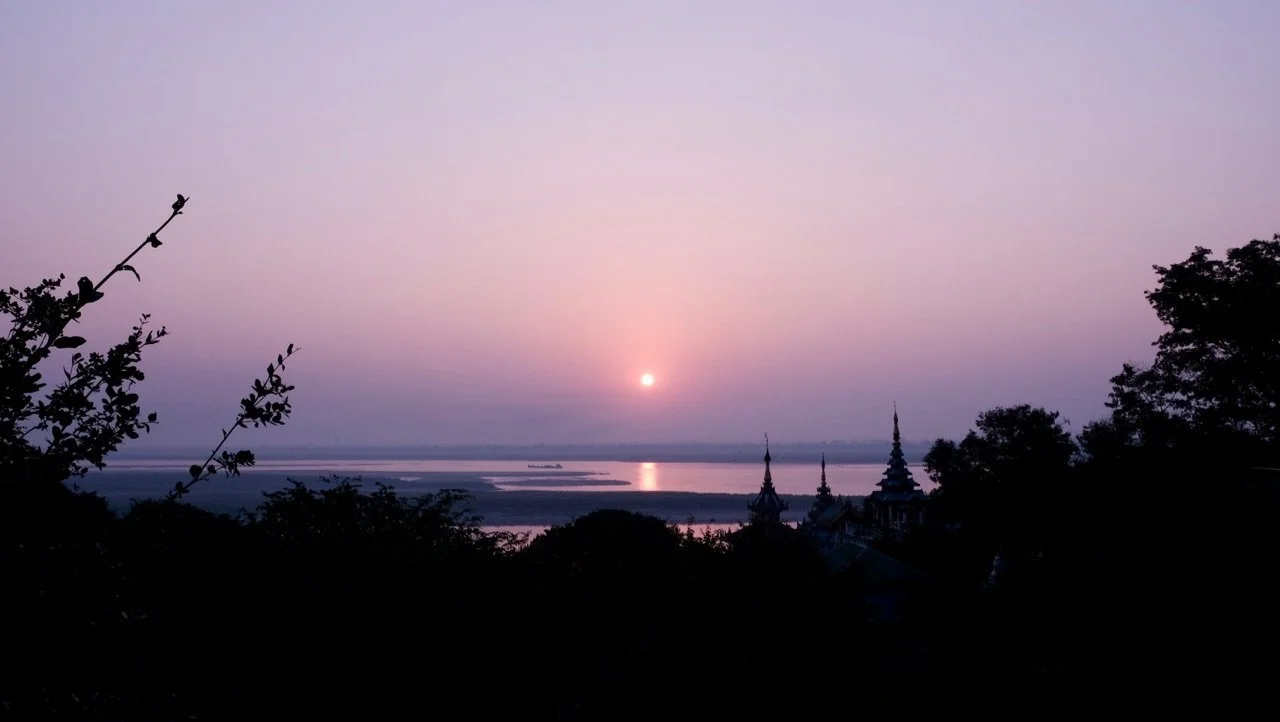ARTIST STATEMENT
My background and life experiences as an immigrant Asian transgender woman in this country had a tremendous impact on my life choices. As a movement artist with a Broadway career, and, as a mindfulness educator with a full-ordination experience in Burma, I have fostered perspectives of leadership as the fierce willingness to be vulnerable to the painful truth.
From stepping foot in the United States alone to becoming the first in my family to earn a college degree, my story reflects a blend of determination and achievement. As a movement artist with a thriving Broadway career and a mindfulness educator with international experience, I've embraced vulnerability as a cornerstone of leadership.
Softness and sensitivity are the hallmarks of my artistic approach, cultivated through practices like Feldenkrais, Noguchi Taiso, and mindfulness. This gentle yet powerful ethos guides my work, fostering generosity and inclusivity, particularly for marginalized communities like BIPOC and transgender individuals.
Despite professional successes, I've encountered biases and challenges rooted in societal perceptions. Yet, I remain steadfast in my commitment to authenticity, refusing to keep falling back to conforming to capitalistic norms that stifle individual and collective creativity.
While acknowledging the limitations imposed by external forces is painful, I practice to hold vulnerability as a source of strength. My story is a testament to resilience, and I am committed to celebrating my worth and pursuing the resources and community I deserve.
Looking ahead, I aim to continue evolving as an artist and educator, leveraging my experiences to create meaningful change and empower others through movement and mindfulness.
INTERVIEWS
Kei shares their experiences of facing microaggressions and cultural challenges over the past year. They express fatigue from constantly accommodating others at the expense of their own needs. Kei discusses the difficulties of navigating societal norms, particularly in the entertainment industry, where conformity is often expected. Despite occasional alignment with specific roles, they highlight the rarity of such opportunities and the pressure to fit into a predetermined mold. Kei's candid reflections shed light on the complexities of identity and acceptance in a demanding industry.
It’s 2021, and the theatre industry is still shut down. In this new series, “The Shows We Need”, Michael Fatica will try to identify pieces that we as a community need to come back when the theatre world resurfaces. We begin with Jagged Little Pill, which deals with many big social issues and starts new conversations. Guests Kei Tsuruharatani and Marc Kimelman chat about the creation of the show, how it has affected them, and more
PUBLICATION
Kate recounts her experience of getting a weave and confronting internalized transphobia and self-doubt. She find solace in Buddhist teachings, particularly the brahma-viharas, and in performing on stage. Ultimately, she remove the weave, reclaiming their autonomy and self-worth. Through mindfulness and self-compassion, she navigates her identity and embrace her true self. (Jun 01, 2022)
Practicing Dana, Sila, and Bhavana as I Transition
Kate reflects on their one-year journey of transitioning as a transgender woman through hormone replacement therapy (HRT). She delve into Buddhist principles of generosity (dana), ethical conduct (sila), and cultivating a wholesome mind (bhavana), which have helped her navigate the challenges and uncertainties of transition. She discusses the importance of embracing her authentic self while facing societal expectations, pressures in their professional life, and the physical and emotional effects of HRT. Despite the difficulties, she express gratitude for the affirming effects of HRT and the newfound sense of worthiness it brings. She concludes by committing to continue their journey of self-discovery and self-compassion through the practices of dana, sila, and bhavana. (Aug 18, 2022)
GUIDED MEDITATION INSTRUCTION
Mindfulness practice with openness. Not too much focus and options for different anchors. This is geared towards being aware continuously without holding on to one object. Just checking how much effort is really needed to be aware. (No ending bell 12:47)
Loving-kindness meditation with 6 sense doors. This practice does not use any phrases that are often used for loving-kindness practice. Sometimes words are useful and other times not. I hope this is helpful as an alternative to practice metta. (No ending bell 14:03)
Walking meditation infused with loving-kindness. Sometimes the moment-to-moment awareness practice can feel oppressive. I hope this provides a little rest with the beautiful quality of the heart. There's no ending bell. (No ending bell 6:20)
What are the benefits of mindfulness for performers?
Kate discusses the benefits of mindfulness practice for performers, particularly in the context of the challenges posed by the pandemic and social upheaval. Kate shares personal experiences and reflections on the fluctuating emotions and struggles faced over recent months, highlighting the importance of accepting difficult circumstances without condition. Through mindfulness meditation, performers can cultivate awareness of their thoughts, emotions, and bodily sensations, leading to greater understanding of themselves and their habits. Kate emphasizes the value of being tender and kind to oneself amidst uncertainty, noting that mindfulness practice is not about eliminating negative emotions but rather about connecting with them with wisdom and kindness. While acknowledging the risks and challenges associated with mindfulness practice, Kate encourages participants to explore different approaches and find what resonates with them. Ultimately, mindfulness can help performers develop resilience, deepen their understanding of human nature, and navigate the complexities of the present moment with greater ease.
(Sep 01, 2020 @Innovative Voice Studio in NYC)




